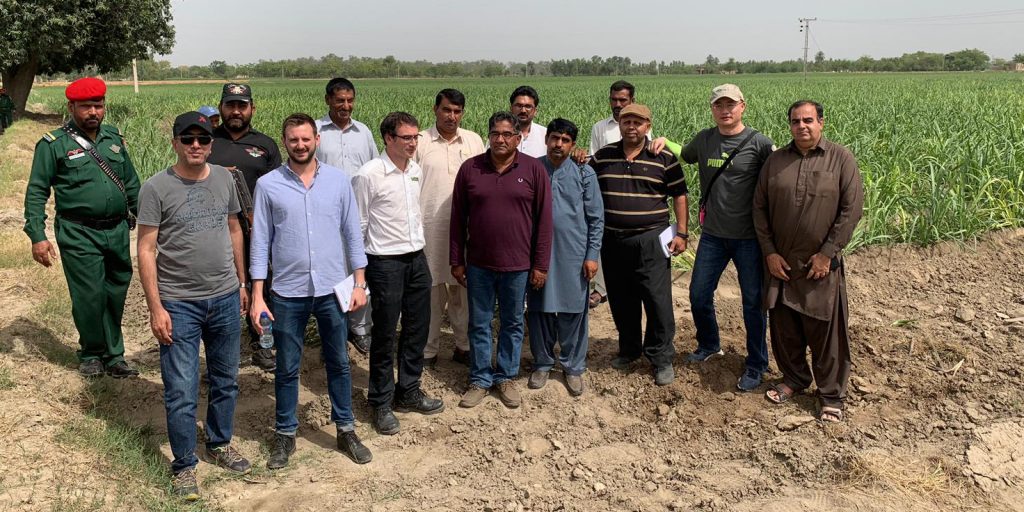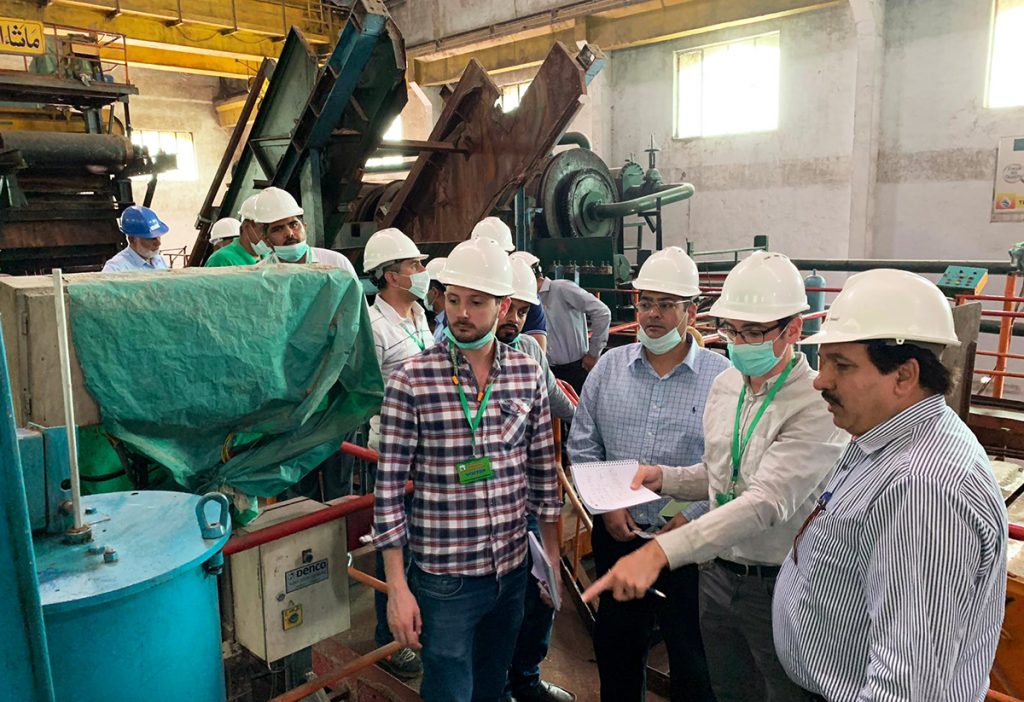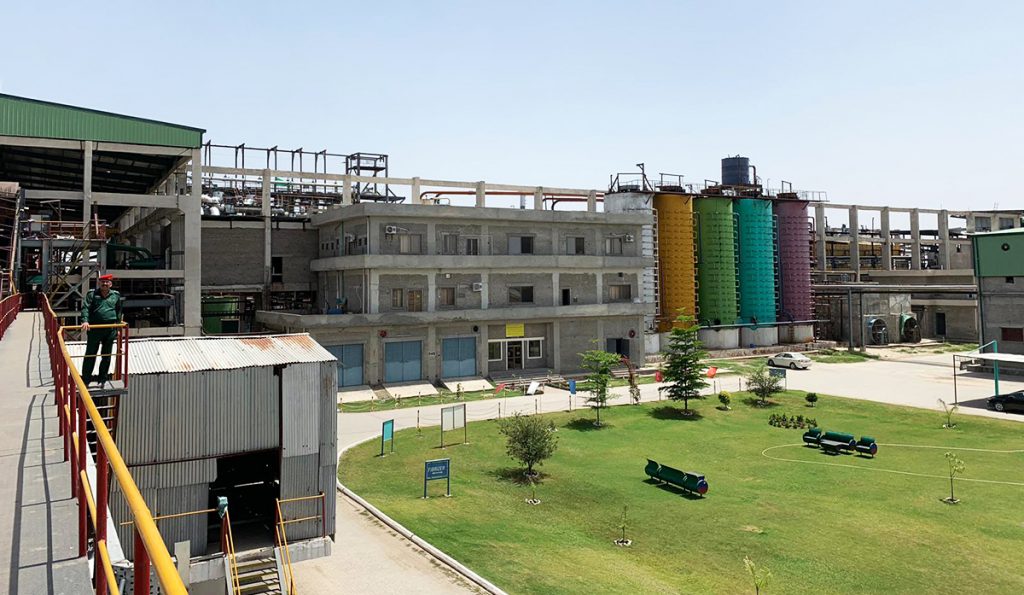18th December 2020

In Pakistan, the world’s fifth largest sugarcane producer, small-scale farmers account for around 64% of cultivation. The sector faces a range of challenges, from water scarcity to lack of high yield variety, through to engagement and capacity building challenges.
So far, six Pakistani sugarcane organisations have joined Bonsucro. The Production Standard has not yet been formally adopted and the sector has limited access to information on sustainable production practices.
We have been continuously engaging with sugar producers across the country to help address these challenges and encourage greater uptake of certified sustainable sugarcane production and trade.
Bonsucro’s initiative with the International Finance Corporation
We have recently completed a project with the International Finance Corporation (IFC) to help two mills (Thal Industries Limited and Almoiz Industries Limited) and their supplying smallholders to adopt sustainable production practices – an initiative that could ultimately benefit up to 15,000 farmers.
With funding from IFC, who led and monitored the programme, Bonsucro delivered in-person training with key staff at the mills. We also mobilised our expertise around sustainability and the Bonsucro standard to conduct a gap analysis at the mills and four farms.
We worked closely with IFC and the mills to recommend improvements that could be made to meet sustainability indicators. Through monthly follow up calls, we were able to further support the mills’ progress and were impressed with the benefits. IFC further engaged the mills by appointing two partners to the project, including an agronomist in charge of bringing in new practices.
Bonsucro provided additional reports to support efforts, including a certification action plan, smallholder compliance scoring report, a cost benefit methodology and Chain of Custody implementation guidelines.

Learning along the way
While the project didn’t come without its challenges, especially in time of pandemic, it has been valuable to learn about the realities of the ground and provide relevant recommendations.
An example was the divergence between the Bonsucro Smallholder Standard’s requirements and Pakistan’s agro-ecological conditions for soil pH and irrigation water. It required IFC, Bonsucro and the mills extension services to reflect on how to approach the requirements of the Standard by adapting production practices. Whilst soil condition can only change slowly over time, the project has also led pilot farmers to be equipped with water meters. They are now able to monitor irrigation water consumption and take appropriate action to maximise their usage.
Another challenge was the lack of information and documentation at farm level. For instance, non-documented land and crop management by farmers required educating them on reporting mechanisms, which provides valuable insight on farmer operations. The mills are now developing a digital solution to information capture and accelerate its insight.
Due to low literacy or illiteracy, the farmers lacked awareness of labour and Environmental and Social laws, with many seeing these practices as a hindrance to work efficiency. To find solutions, mills have invested in comprehensive capacity building operations for their field extension officers, who now have the knowledge and tools to help farmers understand and implement these requirements.
These challenges have been formative, and we keep some important takeaways from the project:
- Successfully supporting mills requires helping to develop internal processes and communications channels to ensure buy-in from all involved parties, including smallholder farmers and management at the mill.
- Collaboration across mills helps to reduce the cost of implementation.
- While engaging smallholders on sustainability matters is challenging, a business case for investing in sustainability is needed to demonstrate long term benefit to mill groups and local communities.
A fruitful initiative
Despite COVID-19 delaying progress for about four months, with the mills having to prioritise COVID-19 adaptation over the implementation of the standard, the project has already delivered some strong positive outcomes:
- Farmers’ increased awareness of crop economics and biodiversity.
- Digitalisation of data at the farm level, through the Farm Diary Application.
- A new dedicated team to drive the implementation of the Bonsucro standards at the farm and mill levels.
- The translation of the Bonsucro Production and Smallholder Standards in Urdu.
- A five-day Training of Trainers (ToT) programme for agriculture and mill teams in Urdu.
- Structured farm data available through Almoiz.
What’s next?
Thal Industries Limited and Almoiz Industries Limited plans to undergo their official certification audits early in 2021 and become certified by the end of the first quarter. With successful certification, the two mills will compete on the global market with more competitive edge.
This will be a fantastic reward to their commitment, dedication and an opportunity to continue to engage the Pakistani sugar sector and increase the number of members and certified mills.
We would like to scale up this initiative and duplicate the procedure to hundreds of other farms, as well as introduce the Bonsucro Standard to other mills under Almoiz Group.
“A good job has been done so far. Bonsucro certification could be a breakthrough and create a positive effect on this market. The initiative is gaining interest from other local sugar mills, which shows there’s an opportunity to scale up.”
Rick Lyu, Director for Asia Pacific, Bonsucro
If you are working with sugarcane producers in Pakistan and would like to collaborate, please get in touch with Rick Lyu.






